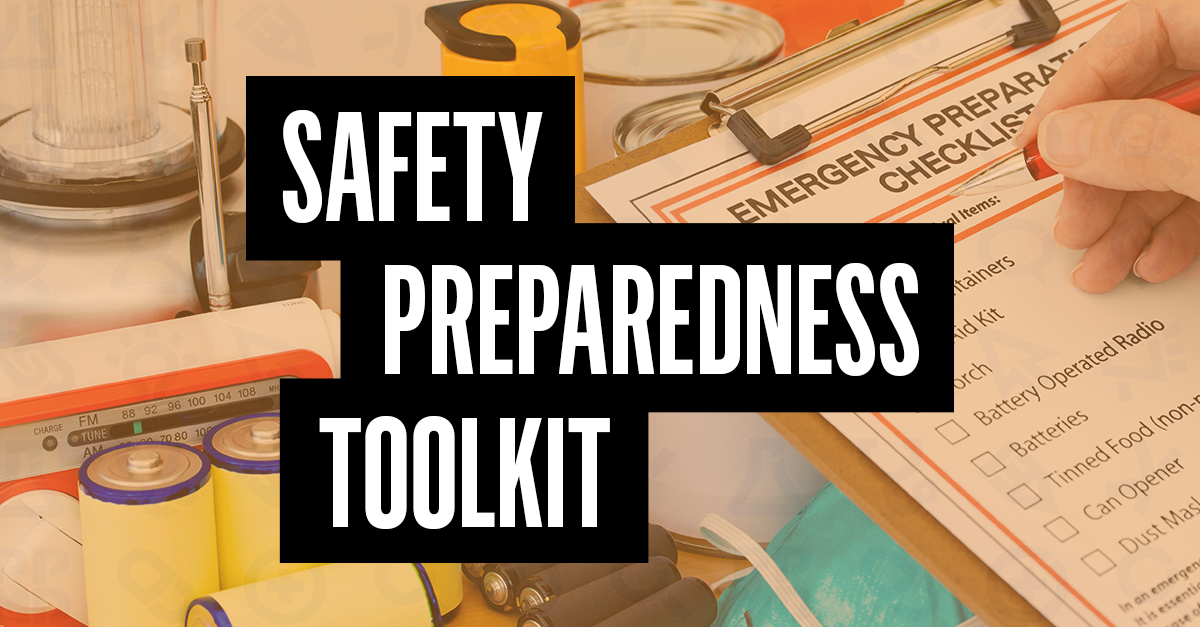
If we have learned anything over the past year, it is that life is unpredictable. Most of us did not anticipate a global pandemic or record-breaking freezing temperatures in Texas leading to a power crisis.
For this reason, PPMD wants to always make sure your family is prepared for the next “big one,” whether it be a viral outbreak, natural disaster, or unexpected weather. Explore our Safety Preparedness Toolkit below for information and resources to help you develop an emergency plan for your family.
Prepare an emergency supply pack (or packs)
- The pack should be something durable, waterproof, and easy to carry (such as luggage with wheels or a backpack)
- The CDC recommends a minimum of a 3-day supply of everything your family needs to get through the crisis
- It is suggested you go through your pack every 6 months to ensure all medications, supplies, and other materials are not expired or require replacement
- Ensure your immediate support network, such as close friends and family, knows where this emergency supply pack is located
Medication supply
- Have an emergency supply of all essential medications and ensure they do not become expired and are updated with any dosing or prescription changes
- Include supplies of additional medications that may be needed (over-the-counter medications for acute symptoms of GI upset, headaches, etc.)
- Have an up-to-date list of all prescriptions, doses, and frequency in case you require an unexpected trip to the pharmacy or urgent care
- Include a chemical cool pack in your emergency kit to store liquid medications as needed
- If you or your child is on daily steroids, make sure you have a supply of IV hydrocortisone for emergency stress dosing – see PJ Nicholoff Steroid Protocol for more information
Power sources
- Have emergency lighting on hand to safely provide necessary care of the person living with Duchenne
- Consider power sources such as extra batteries, car charger, cell phone charger, and surge protector for when the power comes back on
- If you use medical equipment that requires electricity, talk to your healthcare team about how to prepare for its use during a power outage
- If possible, obtain a generator for outdoor use with 20 feet of extension cord and enough fuel to keep it running for a few days
Emergency care planning
- Every family should have a written medical care plan with what to do in case of an emergency and should be regularly updated
- Identify backup caregivers in case primary caregivers have an emergency and cannot care for the person living with Duchenne
- Include a list of providers and contact information, and alternative providers and contact information if primary team is not reachable
- For those with advanced directives, make sure a copy is readily available
Have an exit strategy
- Include an exit strategy in the home setting to get to a safe place in situations such as a fire or severe weather
- Reach out to your local fire department so they are aware of a person with a disability living in the home who may need additional assistance exiting in case of an emergency
Additional resources
For more resources and information about developing an emergency plan, please visit our webpage.
Thank you to Dr. Sue Apkon from Children’s Hospital Colorado for her contribution and review of this content.



 by: Parent Project Muscular Dystrophy
by: Parent Project Muscular Dystrophy

